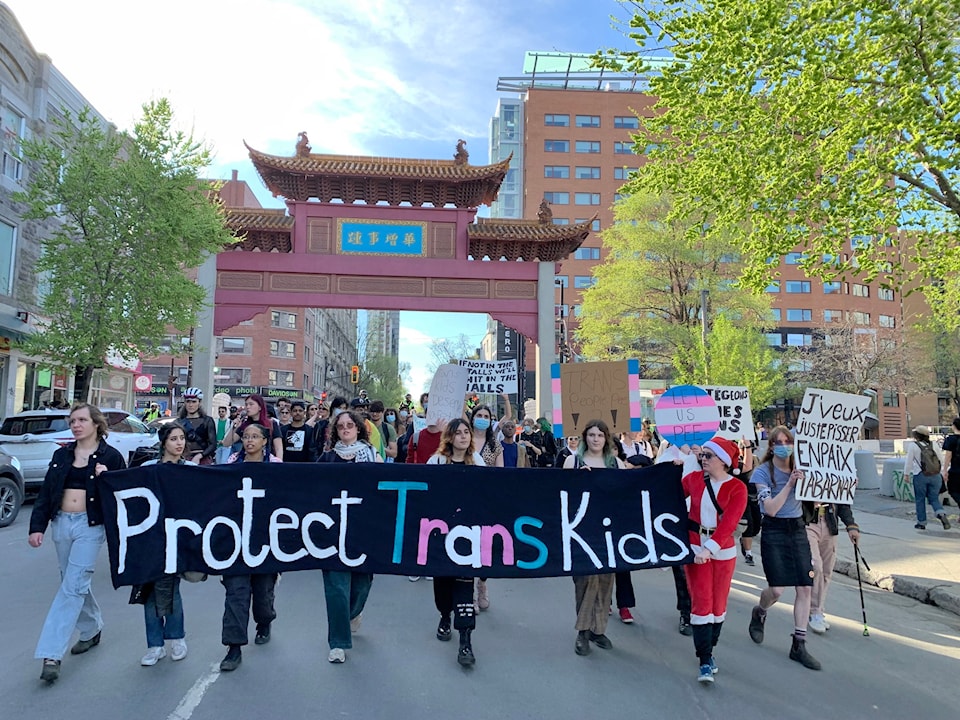When Lin Zahrai first felt signs of gender dysphoria at 12 years old, his first thought was to shrug it off and push it down.
It wasn’t until four years ago he revisited the feelings he felt back then and began to realize the gender he was assigned at birth wasn’t right for him.
Although most of his early knowledge of trans health came from the internet, studying sexuality and gender at Concordia University in Montreal was his ultimate avenue for learning about his identity.
“I think it’s really important for the government to talk more about being trans in sex-ed,” he said.
“For me, if I (had) known what it was like to be trans early on in my life, maybe I could have transitioned earlier. I could have done things differently,” he said.
Despite these wishes, several provinces have been implementing legislation or regulations that target trans youth specifically.
Alberta and Saskatchewan have rolled out legislation requiring parents to be informed and give consent for gender identity-related name and pronoun changes, as well as giving parents the ability to opt out of courses that deal with these topics.
In Alberta, it is called the Education Amendment Act which was rolled out in December 2024. For Saskatchewan, it was rolled out as a parental inclusion and consent policy in August 2023.
Transfemme activist Celeste Trianon, of Montreal, said these types of legislation fail to keep in mind the best interests of trans youth themselves.
“When I say parental consent, that is basically the equivalent of throwing a Molotov cocktail on a cigarette,” she said.
She said the core principle of Canadian family law is the best interests of the child, principles recognized by the 1989 United Nations Convention on the Rights of the Child and signed by Canada in 1991.
“Forbidding trans youth from accessing health care as we’re seeing in Alberta, or forcibly outing them to their parents, these kids are going to be put in danger,” she said.
Trianon said she is worried this will lead to extreme instances, such as conversion therapy for trans youth.
The Alberta Teachers’ Association’s president, Jason Schilling, released a statement openly opposing the Education Amendment Act.
“We are concerned about how students may feel forced to suppress their identities and to be afraid of reaching out to teachers as an avenue for support,” Schilling said.
An academic paper published in 2023 in the Canadian Journal of Human Sexuality studied whether parental agreement provides meaningful input to youth’s sexual health education.
Although the study stated the majority of parents and guardians believed their input was relevant, the study found there were barely any meaningful effects on youth education if parents were involved.
Zahrai said he believes it’s important for all youth to have some form of gender and sexuality education in schools. He said it is especially important for trans people in general who are thinking of transitioning.
“For me, when I did get my gender-affirming care like when I started hormones, there wasn’t a doctor telling me, like, okay, this is going to happen. They just gave me a stack of paper and were, like, read it through,” he said.
Zahrai said he believes it is important that when people go into gender-affirming care, such as hormone therapy, to fully understand every single side effect because of the number of risks that may come with it.
He said this lack of education could also lead to anti-trans supporters using de-transitions as an example of why people shouldn’t go into hormone therapy.
“But this isn’t trans people’s fault. This is the government’s fault because they don’t share all the information in a straightforward way,” he said.




